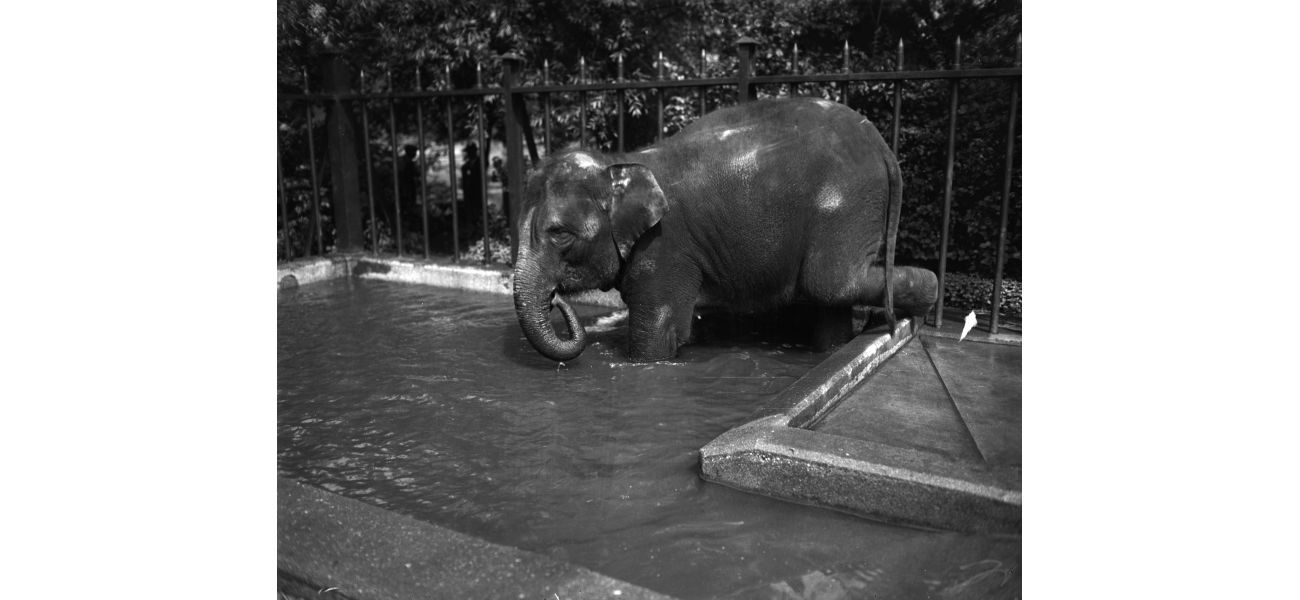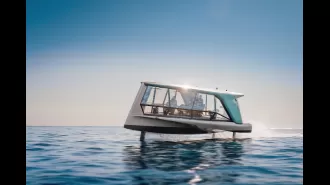In July 1924, Paul Durica discovers interesting finds in the old Chicago Tribune.
Chicago-linked athletes went to Paris for the 1924 Summer Olympics and many returned with gold medals.
December 26th 2024.

A century ago, a group of talented athletes connected to the city of Chicago ventured to Paris to compete in the Summer Olympics. As our friend Paul Durica, director of exhibitions for the Chicago History Museum, sifted through the archives of the Chicago Tribune from 1924, he uncovered some fascinating stories from that time. Many of these stories can be found on his website, pocketguidetohell.com. Let's take a look at a few of his finds from July 1924.
One of the most notable athletes from Chicago was Johnny Weissmuller, a 20-year-old swimmer who had been breaking world records since he began competing with the Illinois Athletic Club in 1921. However, there had been some controversy surrounding his birthplace. But Weissmuller put all doubts to rest when he presented a birth certificate proving that he was born in the United States. He went on to win three gold medals and a bronze in water polo at the 1924 Paris Olympics and two more gold medals in 1928 before making a name for himself as the star of "Tarzan" films.
The Chicago Tribune reported on Weissmuller's success in France, stating that he was the talk of the day. He broke the Olympic record for the 100-meter free style event and also helped set a new world record as part of the American relay team. His teammates, Sybil Bauer and Ethel Lackie, also achieved great success at the Olympics, with Bauer shattering a world record in the 100-meter backstroke.
In other news from July 1924, the Lincoln Park Zoo welcomed a new addition - a 25-year-old elephant named Deed-a-Day. The name, suggested by a Boy Scout in reference to their motto, was chosen out of 12,000 submissions and a $25 prize was awarded to the winner, Winnifred C. Hanley. However, 18 years later, Deed-a-Day passed away from a suspected stomach ailment that was later discovered to be caused by trash fed to her by visitors to the zoo. This unfortunate incident was highlighted by a front-page cartoon by the Tribune's editorial cartoonist, John McCutcheon, under the headline "The scum of creation."
On July 21, 1924, the infamous trial of Nathan Leopold and Richard Loeb made headlines in Chicago. Many believed that the defense would argue an insanity plea, but renowned lawyer Clarence Darrow surprised everyone by entering guilty pleas on behalf of his clients. This meant that instead of trying to convince a jury to spare their lives, Darrow would have the opportunity to persuade the judge during the sentencing phase of the trial. This move proved to be a strategic one, as Darrow was known for his masterful handling of the case and ultimately spared Leopold and Loeb from the death penalty.
Lastly, on July 22, 1924, the Chicago Tribune reported on the longest freshwater race in the world - the Mackinac cup race. This year, a tiny sloop named Sari, captained by Benjamin Carpenter Jr., emerged victorious among a fleet of 29 ships. The race was filled with challenges, including navigating through darkness and treacherous waters, but Sari managed to claim the win in a thrilling finish.
In other news, plans for a new fire station in Chicago's West 25th Street and South Lowe Avenue neighborhood were revealed. The unique design of the building, which would cost $44,000, omitted a traditional feature - the sliding pole. This was due to the advancements in technology and the use of motorized vehicles, rendering the need for a sliding pole unnecessary. This type of pole was actually invented by Chicago's first Black firefighters, Captain David Kenyon and his crew at Engine Co. 21.
If you're interested in more stories from Chicago's past, become a subscriber to the Chicago Tribune or follow them on Instagram for a daily dose of vintage Chicago. And don't forget to join their Facebook group for even more fascinating tales from our city's history. Thanks for reading!
One of the most notable athletes from Chicago was Johnny Weissmuller, a 20-year-old swimmer who had been breaking world records since he began competing with the Illinois Athletic Club in 1921. However, there had been some controversy surrounding his birthplace. But Weissmuller put all doubts to rest when he presented a birth certificate proving that he was born in the United States. He went on to win three gold medals and a bronze in water polo at the 1924 Paris Olympics and two more gold medals in 1928 before making a name for himself as the star of "Tarzan" films.
The Chicago Tribune reported on Weissmuller's success in France, stating that he was the talk of the day. He broke the Olympic record for the 100-meter free style event and also helped set a new world record as part of the American relay team. His teammates, Sybil Bauer and Ethel Lackie, also achieved great success at the Olympics, with Bauer shattering a world record in the 100-meter backstroke.
In other news from July 1924, the Lincoln Park Zoo welcomed a new addition - a 25-year-old elephant named Deed-a-Day. The name, suggested by a Boy Scout in reference to their motto, was chosen out of 12,000 submissions and a $25 prize was awarded to the winner, Winnifred C. Hanley. However, 18 years later, Deed-a-Day passed away from a suspected stomach ailment that was later discovered to be caused by trash fed to her by visitors to the zoo. This unfortunate incident was highlighted by a front-page cartoon by the Tribune's editorial cartoonist, John McCutcheon, under the headline "The scum of creation."
On July 21, 1924, the infamous trial of Nathan Leopold and Richard Loeb made headlines in Chicago. Many believed that the defense would argue an insanity plea, but renowned lawyer Clarence Darrow surprised everyone by entering guilty pleas on behalf of his clients. This meant that instead of trying to convince a jury to spare their lives, Darrow would have the opportunity to persuade the judge during the sentencing phase of the trial. This move proved to be a strategic one, as Darrow was known for his masterful handling of the case and ultimately spared Leopold and Loeb from the death penalty.
Lastly, on July 22, 1924, the Chicago Tribune reported on the longest freshwater race in the world - the Mackinac cup race. This year, a tiny sloop named Sari, captained by Benjamin Carpenter Jr., emerged victorious among a fleet of 29 ships. The race was filled with challenges, including navigating through darkness and treacherous waters, but Sari managed to claim the win in a thrilling finish.
In other news, plans for a new fire station in Chicago's West 25th Street and South Lowe Avenue neighborhood were revealed. The unique design of the building, which would cost $44,000, omitted a traditional feature - the sliding pole. This was due to the advancements in technology and the use of motorized vehicles, rendering the need for a sliding pole unnecessary. This type of pole was actually invented by Chicago's first Black firefighters, Captain David Kenyon and his crew at Engine Co. 21.
If you're interested in more stories from Chicago's past, become a subscriber to the Chicago Tribune or follow them on Instagram for a daily dose of vintage Chicago. And don't forget to join their Facebook group for even more fascinating tales from our city's history. Thanks for reading!
[This article has been trending online recently and has been generated with AI. Your feed is customized.]
[Generative AI is experimental.]
0
0
Submit Comment





